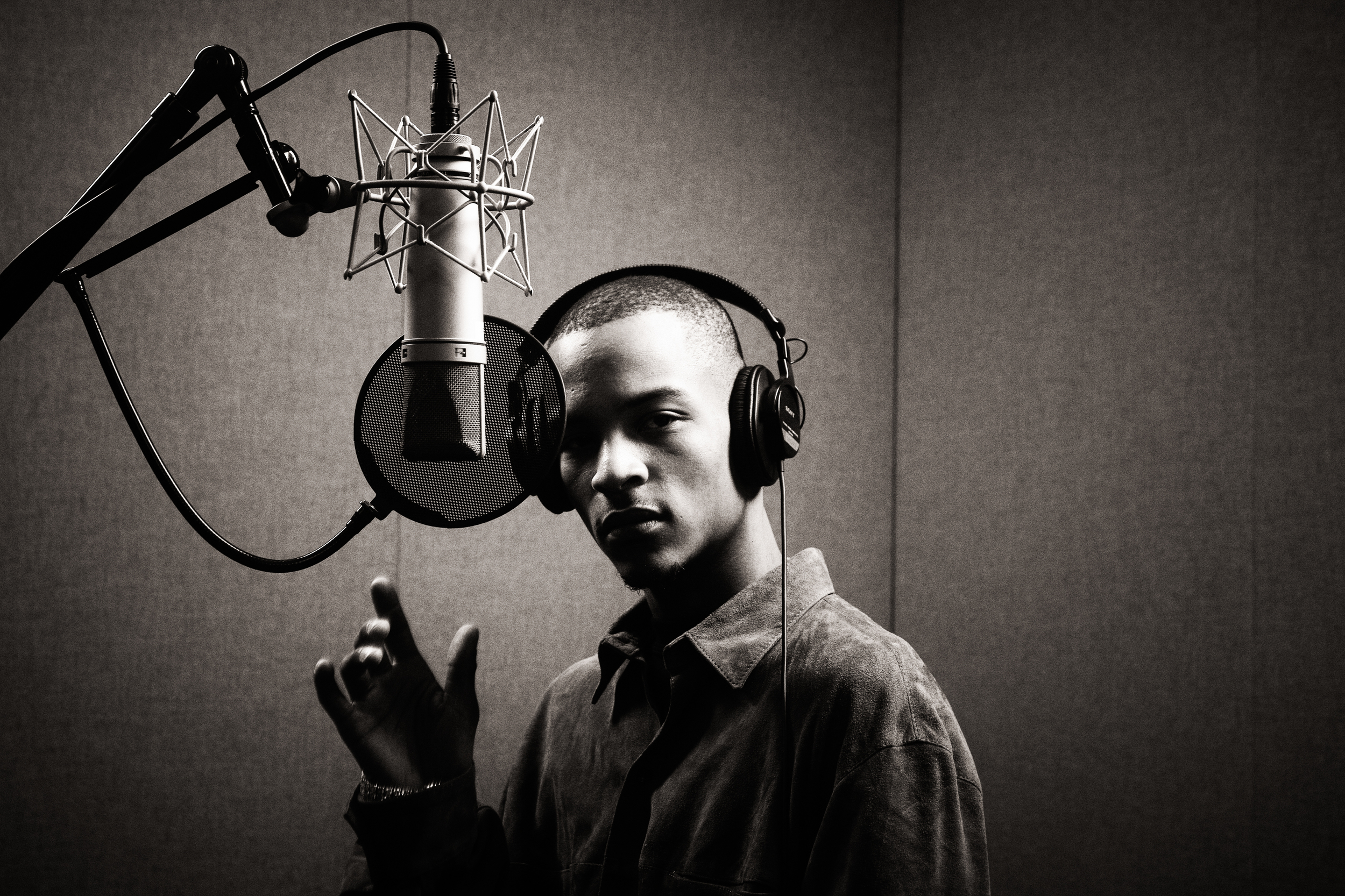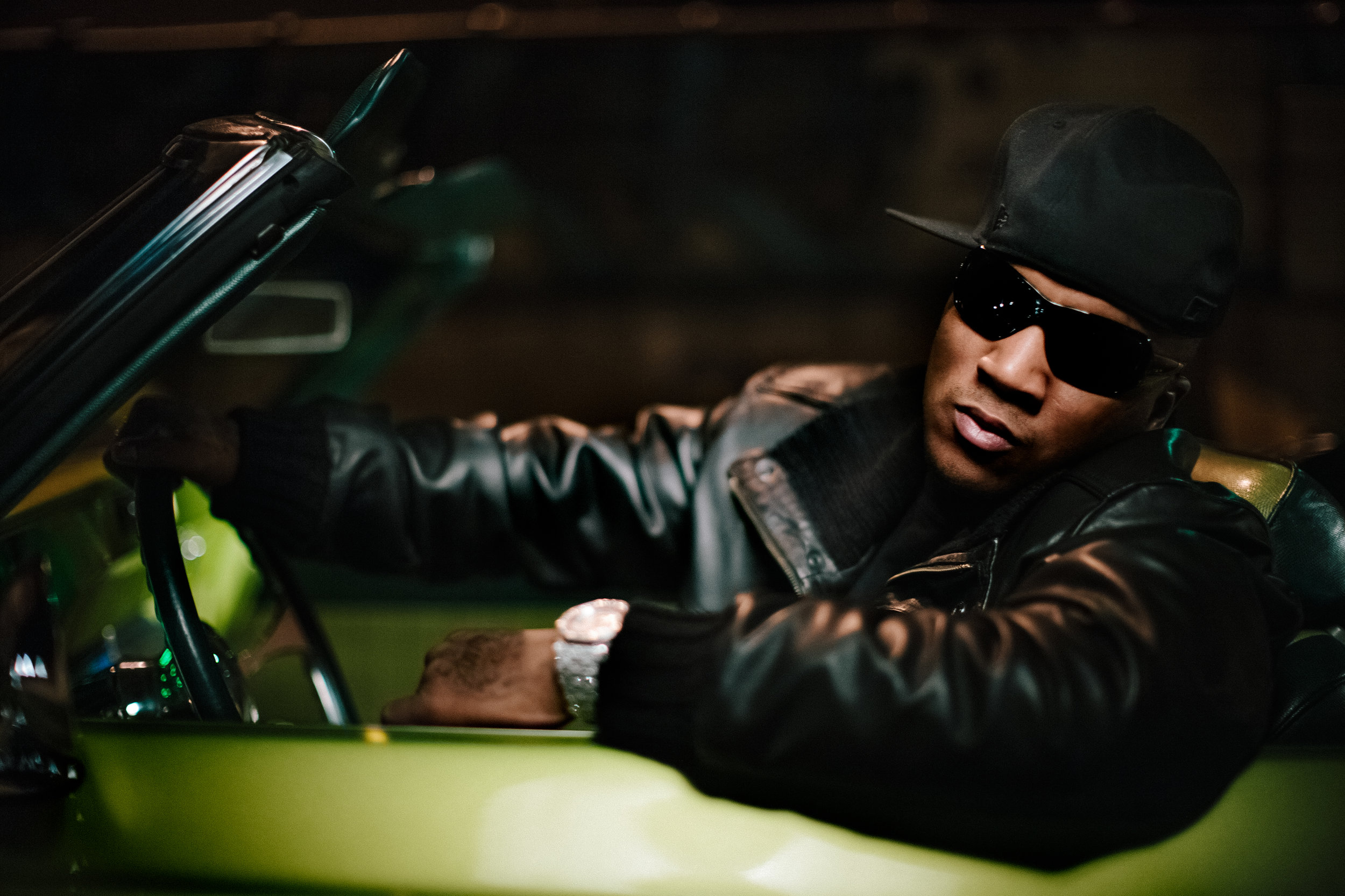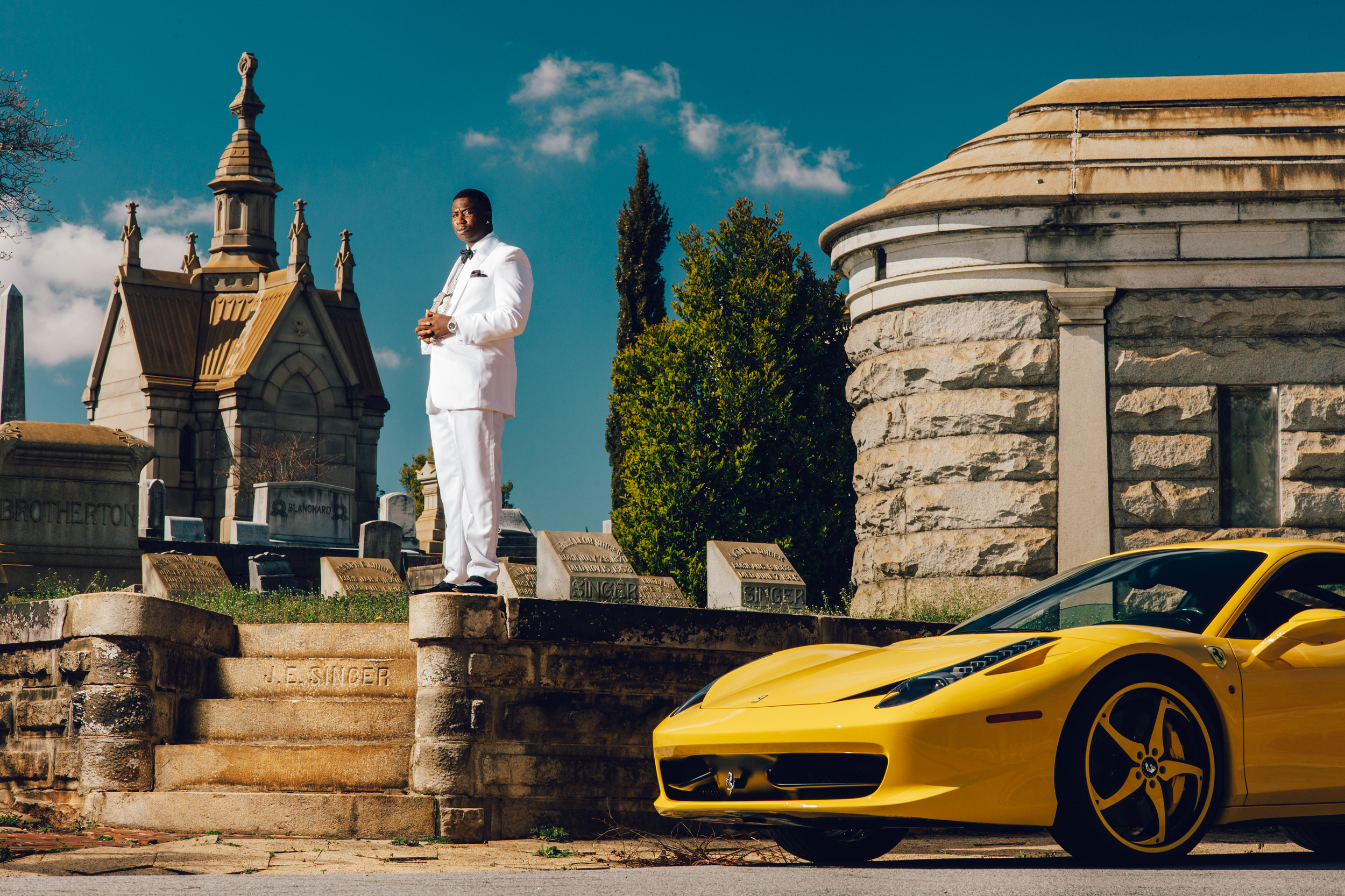How Black Cultural Currency Is Changing the Political Landscape
/by Joycelyn Wilson, Ph.D.
PHOTO: TEAM ABRAMS
As Stacey Abrams continues to fight tooth-and-nail to become the nation’s first black woman governor, one thing is clear: Her campaign shifted the narrative of Georgia politics.
Abrams got this close to the dubya for several reasons. Chief among them were the self-determined strategies of black female visionaries like Stephanie Brown-James, Jessica Byrd, Kayla Reed, Mo Ivory, and Jacoria Borders. This list is only a smidgen of the black women who worked behind the scenes.
Auntie Oprah even showed up.
These women understood one central theory: Culture is currency when organizing a progressive campaign strategy to impact voter registration, voter participation, and fundraising across social boundaries. And as NPR’s Rodney Carmichael put it, “Atlanta is dripping in black cultural currency.” For years, the intersections of music, business, and politics have shaped the outcomes of Atlanta’s mayoral elections. Now, it has broadened to statewide races.
Turnout among non-whites in Georgia hit a record 40 percent in this election, and that never would have happened if Abrams and her supporters had failed to leverage the power of black people’s cultural currency.
Abrams is a black woman born in the South. She attended DeKalb County’s Avondale High School and then Spelman College. She is a beneficiary of the Civil Rights Movement: born of a family who instilled in her black pride and taught her how to use the weapons of education and public service to navigate and transform — dare I say it? — the social “traps” born of American racism and bigotry.
As it was with the election of Atlanta Mayor Keisha Bottoms this time last year, Atlanta’s hip-hop generation and the politics of its trap-music culture mattered in this election cycle. There are obvious connections between the music and the politics. Abrams’ focus on the inequities of education, criminal justice, and healthcare come out in trap music. And they were messages with far-reaching connections for many Georgians — black, brown, white, urban, rural, working-class and poor — who, for years, have been blocked from opportunities to live their best lives.
This year, many of these unlikely voters voted. Many, for the first time.
Turnout among non-whites in Georgia hit a record 40 percent in this election, and that never would have happened if Abrams and her supporters had failed to leverage the power of black people’s cultural currency.
Abrams kept her Southern hip-hop sensibilities at the forefront throughout this entire campaign. In fact, she attended many community gatherings such as ONE Music Fest, which, for its 2018 installment, celebrated trap music. She broke the barrier at Atlanta Pride; no other gubernatorial candidate had ever attended. And when President Barack Obama visited Morehouse College last week, Abrams walked out to Jill Scott’s “Golden,” after an intermission where the popular rap song “Swag Surfin’” from Fast Life Yungstaz (FLY) of Donald Glover’s hometown of Stone Mountain, Georgia, was all the hype. Trap rapper 2Chainz — creator of the city’s iconic pink trap house — was in attendance along with many other hip-hop professionals and celebrities. And weeks before, Abrams showed up to the 25th-anniversary concert for Jermaine Dupri’s So So Def Records, shortly after speaking at a Stacey Abrams for Governor private fundraiser at the home of film moguls Will and Heather Packer.
This lady has been grindin’ for the culture.
I attended the fundraiser at the Packers' home. For those who don’t know, Will Packer is the producer of films such as Girls Trip and Straight Outta Compton. Along with the Packers, rapper/actor Chris “Ludacris” Bridges and his wife Eudoxie Bridges were hosts. Co-hosts included big names like Kandi Burress, Jermaine Dupri, Usher Raymond, LaLa Anthony, Jada Pinkett Smith, Kerry Washington, Taraji P. Henson, Chris Rock, Grant and Tamia Hill, and Queen Latifah.
Tiffany Haddish, Kelly Rowland, Chris Tucker, Tyrese Gibson, and Marlon Wayans were in attendance along with managers, lawyers, tech gurus, and concerned citizens from as far away as New York. Lest we forget, Atlanta doesn’t do well without a chip on its shoulder — especially in money, politics, innovation, and culture. So, this event represented more than a star-studded political fundraiser: It was a glimpse into how the past has changed the present — how hip-hop culture has raised black people to new levels of power and wealth.
“Wow,” I thought to myself, “these tables have turned.”
PHOTO: TEAM ABRAMS
* * *
In 1960, five years before the Voting Rights Act outlawed voter discrimination and 13 years before Atlanta elected its first black mayor, then-Mayor William Hartsfield described Atlanta as a city too busy making money, closing deals, and growing the economy to fall prey to segregationist politics. It sounded idealistic almost 60 years ago, and it still does. Racism, poverty, and insufficient resources continue to create and maintain environmental, economic, and educational traps in Atlanta and Georgia — especially for poor people, be they black, brown, or white. Abrams’ plan is to address the issues that create these predicaments.
Think back 24 years to the evening at the Source Awards when the audience booed Andre Benjamin and Antwan Patton — aka Outkast — as they accepted their Best New Hip Hop Artist award for Southernplayalisticadillacmuzik.
andre benjamin - photo: zach wolfe
The event comes up in every discussion of Southern hip-hop history, so if it feels clichéd today, that's because it really was a landmark moment. Benjamin eerily predicted and nervously confirmed that “the South got somethin’ to say,” concluding with a simple “that’s all I got to say.” Our region's music proved him right years ago. But not even the eclectic Mr. Benjamin could forecast how much influence the Southern hip-hop/post-civil rights generation would or could have on voter registration and participation hitting all-time highs throughout Georgia — fighting back in the face of voter suppression and running neck-and-neck to the bitter end against a Republican candidate.
A modern Southerner must understand the role culture plays in the influence of politics, voter registration, and overall turnout. Culture is the connector. So, if Atlanta is too busy to hate and Georgia and the South are still letting the world in on what they have to say, why do the values of the trap generation resonate to the point of influencing the political process? Beyond its storytelling, what do we talk about when we talk about trap? Good or bad, we talk about how to get free. For black, brown, and poor people living in white America, liberation is no easy feat. I believe Stacey Abrams understands how the use of culture and storytelling are effective tools for activating participation that helps sustain a progressive political agenda.
Down South trap storytelling documents the resilience of black people — and that's just one of the many historical contributions of Atlanta’s hip-hop generation. Linguistically, trap is the latest metaphor for talking about the predicaments of racism. Stylistically, it represents a shift in black politics, expression, and performance. And for some (both seasoned and novice listeners), trap is cast as one of the great mysteries of hip-hop at large. It isn’t. It is profane and political. Tragic and pleasurable, all at the same time. It’s flashy and hood; it's about resilience and retaliation. It’s spiritual and secular; soulful and sexual. Like the blues tradition it stands on, trap celebrates the black experience and criticizes white supremacy.
Blues is “an emotionally sound music,” the poet and critic Leroi Jones wrote in Blues People: Negro Music in White America. As is the case with trap, the vulgarity of blues “assured its meaningful emotional connection with people’s lives,” Jones wrote. Today Southern trap music is proving to be the most valuable, profanely political innovation of black music since the origin of hip-hop itself, and its foundations are based in the American South. A crash course on trap explains why its political ideologies work in a campaign of this magnitude.
Southern trap music is proving to be the most valuable, profanely political innovation of black music since the origin of hip-hop itself, and its foundations are based in the American South.
Pimp C, one half of UGK, has this classic saying at the end of “Let Me See It” from the album Dirty Money (2001). Distinguishing his Houston sound from hip-hop, he describes Southern rap as “country rap tunes” and not “hip-hop records.” To him, dirty South rap is music steeped in Southern sound, soul, politics, and living (good, bad, or indifferent). After Outkast's landmark moment in 1994, Southern rap established its own regional and cultural independence rooted in the ways of the American South. Trap music cultivates stories about the day-to-day survival strategies of living black and poor in the American South. You are in the “trap” if your life is lived in a poverty-stricken, crime-infested environment where drugs are bought, sold, and done. A “trap” is where the virtue of “the hustle” is often honed. But the trap is also an unsafe environment.
Concentrated poverty is the main ingredient sustaining “traps.” In fact, the lack of access to equitable resources for healthcare, jobs, and education is the most racist weapon. It keeps poor people trapped inside the boundaries of insufficient living, which leads to crime, violence, undiagnosed mental-health issues, and self-destructive behaviors. Firmly within black expressive traditions, the stories of the trap are documented through art, performance, and music.
Southern blues would have turned out much differently if the African-Americans who made that music did not have to confront racism. I’d suggest the same for Southern rap. I’d go even further to suggest trap is blues and blues is trap. In a city like Atlanta, where drug and sex trafficking play as big a role in our culture as our complex civil rights legacy, I’d suggest the two are main ingredients for the “creation” of down South trap music. Here’s a city and state like no other, trying to square the circle of black excellence amid significant black poverty.
Which highlights another contribution of the trap concept: It offers an umbrella term for bringing together the genres of black music and the regional networks of hip-hop.
Whenever I study culture, I start with the language. I look for the word usage in the lyrics. For trap music, I looked for evidence of when the word "trap" itself was first used in Southern hip-hop storytelling. In 1995, six years before Dirty Money, the first group of Southern artists to use the concept was the GOODie MOb, a portmanteau/acronym for "The Good Die Mostly Over Bullshit.” From Atlanta, Goodie introduced the soul of trap with an album titled Soul Food.
On “Thought Process,” the first song on Soul Food, “trap” is used three times. Terrance “T-Mo” Barnett, Willie “Khujo” Knighton, and Andre “3000” Benjamin (who was featured on the record) use the term to describe the environmental and psychological predicaments of African-American youth coming of age in Southwest Atlanta during the ’80s and ’90s — when black youth felt caught between the excellence of Atlanta’s many black leaders and the crushing realities of black poverty.
Musically, Goodie follows a tradition in black music that establishes the soul, the spirit, and the street sensibilities of trap music culture. They advance how we understand the nativity of hip-hop as an expression against the politics of race and class. Consider how Soul Food begins with “Free.” It’s a gospel blues prayer presented as an album intro. Its plea is to be "free" — the exact opposite of being “trapped.” To be free is liberation. Outkast, on Aquemini’s “Spoottieootiedopalicious,” expands this ideology of trap when Big Boi says:
Can’t gamble feeding baby on that dope money
Might not always be sufficient
But the United Parcel Service and the people at the Post Office
Didn’t call you back ’cause you had cloudy piss
So now you back in the trap, just that, trapped
Go on and marinate on that for a minute.
In 2003, five years after Aquemini and eight years after Soul Food, rapper T.I. and Aldrin “DJ Toomp” Davis codified the sonic sensibilities of what we recognize as the sound of trap music, working with rappers like Young Jeezy and Gucci Mane. Jeezy's albums like Trap or Die, Thug Motivation 101: Let’s Get It, The Inspiration, and The Recession, and Gucci's Trap House, Hard to Kill, and Everybody Looking — all these albums would cross over to different races, ethnicities, and economic classes because of their grimy and explicit stories of resilience, which of course are applicable in worlds far beyond drug selling and underground hustling. Thus, in the broader culture, "trappin’" ultimately took on a whole new meaning.
T.I., Jeezy, & Gucci Mane - Photos: Zach Wolfe
What is its connection to the broader cultural and political landscape? Why is it so popular locally and beyond? Why do a diverse group of people gravitate toward it? Surely, trap isn’t just the beats. Nor is it just the rhymes. It’s more than that. At its root, trap is a progressive way of looking at the world, taking what you can, and flipping it to make it work. Like Stacey Abrams did on Tuesday. When the music meets the politics, the trap mindset influences elections, because people who connect with the music will vote against policies designed to sustain predicaments like mass incarceration, gun violence, subpar public schooling, homelessness, and minimum wage employment. The list goes on and on.
Trap is trending. It’s the hottest genre in all of pop culture right now. There’s T.I.’s Trap Museum and 2Chainz’s Trap House. Both open to the public. Cable channels have dedicated specials to uncovering the “mysteries” of trap life as fans gather monthly in different cities to enjoy Trap Karaoke.
At its root, trap is a progressive way of looking at the world, taking what you can, and flipping it to make it work.
The curation of trap music culture has also made its way into higher education programs and courses. I teach an undergraduate computational media course called “Documentary Podcasting and the Ideologies of Trap.” While a goal of the course is to "edutain," its essential aim is to use Atlanta’s hip-hop and social justice history to teach students how to produce media content with social impact. We spend a lot of time studying hip-hop culture, its Afro-southern roots, and its ability to teach, message, and influence politics. We study hip-hop’s complex relationship with white America and the emergence of trap as ideology, sound, and politics, framing it as an extension of the Southern blues aesthetic.
Because that's what trap truly is: Southern blues for the 21st century.
In the election of Mayor Bottoms and the historic political campaign of Abrams, evidence suggests that the rise of the down South trap-music generation and the ideological politics of its expression are already playing a significant role, making history even. And it will soon force our community to face a larger question: What do we really mean when we talk about the politics of trap music?







